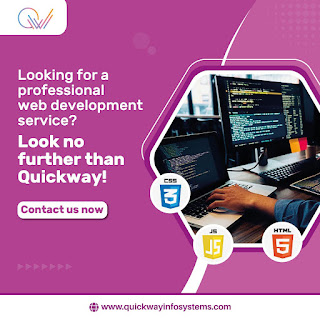WHAT WILL IT COST TO Construct A CUSTOM ERP
Introduction: When the cost identified (during the planning stage), a budget can be established. It should be anticipated that problems and unforeseen issues are likely to result in additional expenditure. Whether an allowance is made for this is a policy decision by the finance management. Actual expenditure is monitored against the budget, for the duration of the project. Variances to be aware of include high consultancy costs, particularly in the early stage of the project, and low training costs. If you choose to use consultancy, there should be details of cost at the selection process. These costs should be monitored to avoid overspend dedicated android developers in India and uncertainty. If a significant variance arises between then and the implementation time, it should be questioned why this is so. Be sure to monitor the other major cost associated with any consultancy - training.
When there is an
indication that budgets are going to be overspent, then it trends to be
training budget that suffers. However, training is one area that trends to be
reported as being inadequate.
Keywords: ERP
software, organizations, ERP ownership, ERP system, Project Management,
Consultants.
Cost
of Custom ERP Development
The total cost of ERP ownership
includes the cost of packaged software, hardware, professional services (for
ongoing maintenance, upgrades and optimization) and internal costs. The cost of
a packaged ERP software depends on the scope of
the project (the number of modules and end-users), and complexity. If you need
to integrate with other business entities, it will cost more than a simple
installation. ERP vendors offer discounts if you purchase multiple products
from their suite.
Mid-sized organizations typically, commit
a few million dollars ($) to packaged ERP software.
Implementation of ERP
systems routinely requires purchase of new computer hardware, systems software,
network equipment and security software. The costs of hardware vary in a wide
range depending upon the scope of implementation and platforms. The hardware
typically costs about half million dollars for mid-sized organizations that
implement ERP systems.
Implementing an ERP system
requires the need for the services of many professionals. These services cost
money. The major costs under this category are customization, integration, data
conversion, data migration, testing and training.
It is unlikely that a
financial director will support the idea of unlimited funding for the ERP
implementation project. Instead from control stance, a budget needs to be established.
This will have based upon an estimate of the likely costs, In identifying where
the costs are likely to arise, consideration should be given to:
·
Hardware
·
Operating System
·
Database License fee
·
Core Software License fee
·
Additional module License fee
·
Additional seat License fee
·
Third party Software License fee
·
Integration of third-party software
·
Software customization
·
Consultancy
·
Training
·
Living and travel expenses (includes
travel time)
·
Software maintenance or warranty renewal
·
Upgrades
The vendor will provide
much of this cost information. While it is likely that he will provide a
specific figure for each item, this may only be an estimate. Whilst the costs
of the software can be precisely stated, on issues where there is uncertainty
about what is involved, the cost will only be an estimate. This is likely to be
the case for items such as consultancy, which history suggests is an area for
potential overspend. In this case, an upper and lower value, and then expected
value should be sought to give a fairer reflection of the potential cost
exposure.
While some of these costs
will be one-off (e.g. hardware, training and consultancy), others will be
ongoing (e.g., maintenance). To get a better picture of the cost exposure, a
long term perspective should be taken. A meaningful time horizon is five years.
By the five years have been passed it is quite possible that the application
has been reviewed and a new budget established for additional work, such as an
upgrade or additional functionality.
Not to be overlooked are
the indirect cost, which are mainly internal costs. These can include:
·
Time and consequent cost of employees
involved in the project
·
Cost of temporary personnel to replace
those involved in the project
·
Cost incurred due to other activities not
being carried out, cost related to off-site travel and sustenance, e.g.
off-site training
·
Costs related to the internal resources,
such as the implementation team or work team, who administer and maintain the
system and provide internal technical support.
The
Hidden Costs –for ERP Implementation
Although different
companies find different hurdles and traps in the budgeting process, those who
have implemented ERP packages agree that some costs are more commonly
overlooked or underestimate than others. Armed with insights from across the
business, ERP imple mentation veterans agree that either one or all of the
following eight areas are most likely to result in budget overruns:
·
Training
·
Customization
·
Integration and Testing
·
Data Conversion
·
Data Analysis
·
Brain Drain (employee turnover)
·
Continuing maintenance
Summary: From a practical point of view, the one area where the cost is most likely to get out of control is the one related to the use of consultants. On-site attendance of vendor personnel can boost costs if uncontrolled of the unexpected occurs. Thus, it may be desirable to contrast the estimated dedicated android developers in USA cost of personnel on a time and materials basis with a fixed cost implementation. While the latter may be more expensive at quotation stage the reality may be the opposite.




Comments
Post a Comment